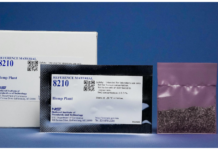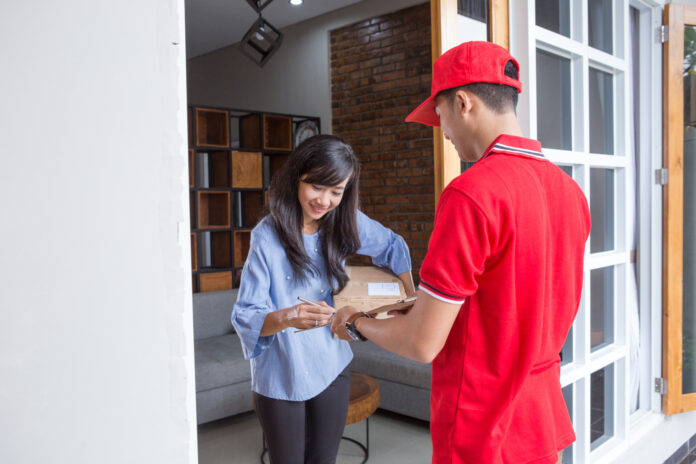You may soon be able to order cannabis the same way you order restaurant takeout. In April, Uber Chief Executive Officer Dara Khosrowshahi made headlines when she said the company would look into cannabis delivery if weed becomes federally legal.
The move isn’t shocking from the delivery app given its acquisition of Drizly, an alcohol delivery service, for $1.1 billion in February. Delivering cannabis can be equally — if not more — challenging than delivering alcohol due to regulations that vary by state or municipality.
The recent expansion of legalization across states like New York, in addition to weakened stigma around cannabis use, could help bring delivery to more territories. More companies like Uber and Amazon are openly confirming their interest in the cannabis market once federally legal, opening the door to new strategies for delivery services.
The delivery landscape
Just because a state has legalized adult-use or medical cannabis doesn’t mean it can be delivered to your doorstep. Cannabis delivery laws depend on the market, with some states allowing delivery services throughout and others giving jurisdiction to each municipality.
In Colorado, for example, the city of Aurora recently signed an ordinance allowing delivery, but the service is not yet available in Denver. Oregon also has updated original laws to allow delivery in some form, while Washington state bans delivery entirely.
However, newer East Coast markets hint at a trend toward cannabis delivery expansion. New York included delivery regulations in its Marijuana Regulation and Taxation Act, although limited in size and scope. Compare that to Massachusetts, which initially didn’t allow delivery but is now creating two types of delivery licenses: one connected to retail and the other to purchase directly from producers. Delivery-only services will only need a delivery license to operate, but some cannabis providers argue this regulation creates an additional cost for brick-and-mortar shops.
Uber Eats’ world aggregation model
Being listed on a delivery service app like Uber can build a business’ reputation with customers and boost orders. The company’s aggregation model owns the relationship with customers to ultimately create a loyal user base for Uber, but just because a customer is loyal to Uber doesn’t mean they’re loyal to a particular business. For example, if you’re looking for tacos in California, Uber Eats will show you a range of restaurants, average meal prices, and customer reviews. Those features can sway a customer’s restaurant decision, not cuisine choice.
Flipping Uber Eats’ model into the cannabis space would mean delivery services take, place, and deliver a customer’s cannabis order right to their door, similarly to restaurants and alcohol. There are some cannabis sites that offer similar weed services, like Leafly, Weedmaps, IHeartJane, and Dutchie, but they act as a third party, sending your order along to someone else.
It’s no secret delivery apps and restaurants have a difficult relationship. Restaurant owners get stuck with fees but are dependent on the service to drive sales. If the app is oversaturated with restaurant options, there’s less chance someone will order from one particular restaurant. On the flip side, some businesses can be so overwhelmed with orders, they end up not being able to fill them. That can lead to customer complaints — and a bad review can stain a business forever.
Cannabis delivery models
Cannabis delivery is one of the industry’s most anticipated untapped markets. Similar to the first restaurant delivery service, the most exciting part about cannabis delivery is the variety of ways to approach it.
Storefront and Delivery
One way to deliver cannabis is through local brands that are typically featured in a storefront. The biggest benefit to this model is having a product shown and available to purchase in two locations. Some brands already are capitalizing on this approach, including Sherbinskis and Emjay or Terrascend’s The Apothecarium.
Delivery only
Similarly to Drizly’s model, delivery-only options only showcase cannabis products — not produce them. This delivery model would open the door to high-quality products at lower costs, as brands won’t have expenses associated with cultivation, production, or retail. Services Grassdoor, Hyperwolf and AMuse follow this model.
Empowering omnichannel F brands
Delivering cannabis directly to consumers is a whole new ball game for brands. A brand would need either a retail license or to deliver through an existing partner to incorporate direct-to-consumer cannabis. Seth Rogan’s Houseplant brand utilized this approach when it first entering the California market, selling directly to consumers through its delivery partner, Emjay. This helps brands develop a relationship with customers while casting a wider net for distribution.
Delivery and the future
Just like a restaurant or alcohol vendor, cannabis sellers may need to incentivize customers on a delivery service app like Uber. Creating trust upfront will be more important than ever, because some cannabis enthusiasts tend to stick with a strain, shop, or seller if the quality and delivery are satisfactory. Depending on what happens next in the market, we are sure to see different cannabis delivery models and services pop up.
Will Uber be the next aggregator for micro-licenses? Is vertically integrated delivery here to stay, or will more traditional models become the new trend? With Uber and Amazon both eyeing cannabis, there’s a good chance your future cannabis order can come with a side of your favorite munchies.










